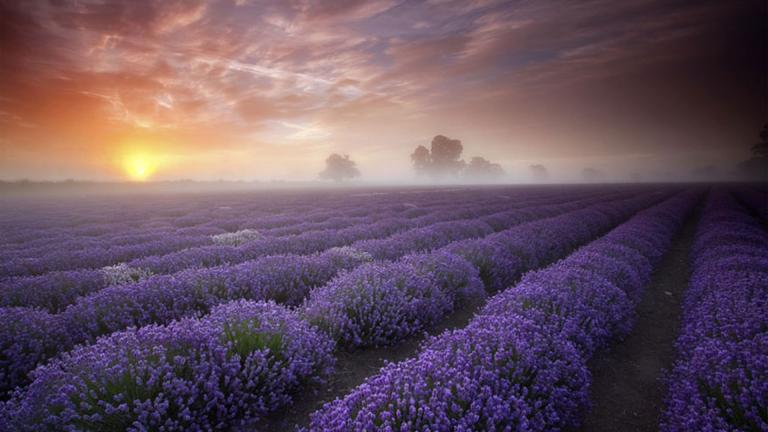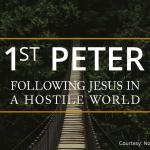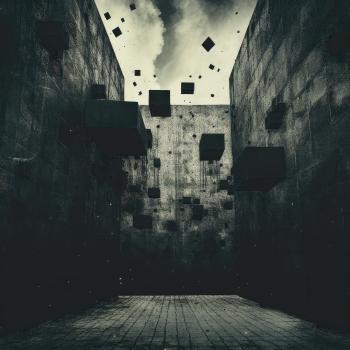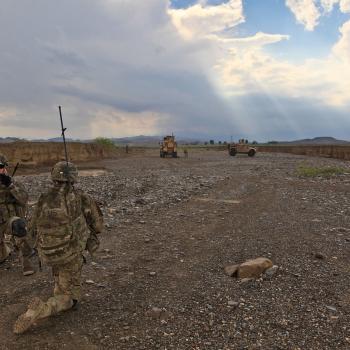
New Creation: sounds good.
No more death, suffering, or hunger (for much of the world this is really good news), and free water from which we never thirst again (this too is really good news for much of the world).
And, check this out, Rev 22:4 says, “They will see His face, and His name will be on their foreheads.” Yes!!!
Remember how Moses wasn’t allowed to see God’s face because “no man can see Me and live”? (Exod 33:20). So God hid Moses in a cave. Then He covered Moses’ face. And after He had passed by, He removed His hand and allowed Moses to see His back: “Then I will take My hand away and you shall see My back, but My face shall not be seen” (Exod 33:23).
Then, after Moses comes down from the mountain, his face was glowing (Exod 34:29-35), though Moses didn’t know it, and so they had to put a veil over his face!
Well, all that will change in the New Creation! We will see His face!
It is critical, however, that we realize that the New Creation is not simply something future. It has already begun!
The New Creation has already begun
Many are familiar with the first three words of John’s gospel: “In the beginning” (John 1:1). And we recognize that these words are identical to the opening words of the book of Genesis.
NB: In order to confirm this claim we would need to note that the first two words in John 1:1 (they translate as three words in English) are identical to the first two words of the Greek translation of Gen 1:1—which was available in John’s day.
Well, creation, or better “New Creation,” pervades the entire account of John’s gospel; including his description of the resurrection of Jesus.
John begins his account of the resurrection of Jesus by noting, “Now on the first day of the week Mary Magdalene came early to the tomb” (John 20:1).
This is actually surprising because everyone already knew that Jesus rose on “the first day of the week” (Sunday).
After all, if John’s gospel was the last to be written, which is quite likely the case, then John’s readers would have been well aware that Jesus rose on Sunday. After all, Matthew, Mark, and Luke all mention that the resurrection occurred on “the first day of the week” (see Matt 28:1; Mark 16:2; Luke 24:1).
As we continue reading John’s account, we see that John again says, “So when it was evening on that day, the first day of the week” (John 20:19). Why bother repeating himself when he already told us in 20:1?
I believe that John repeats himself because He wants us to think forward to the New Creation. In other words, John stresses that the resurrection took place on “the first day of the week” (20:1, 19) because he wants us to recognize that Jesus’ resurrection happened on the “first day of the New Creation week.”
That this is John’s intent gains support from John’s account of Jesus’ appearance to His disciples (read carefully):
“So when it was evening on that day, the first day of the week, and when the doors were shut where the disciples were, for fear of the Jews, Jesus came and stood in their midst and said to them, ‘Peace be with you.’ And when He had said this, He showed them both His hands and His side. The disciples then rejoiced when they saw the Lord. So Jesus said to them again, ‘Peace be with you; as the Father has sent Me, I also send you.’ And when He had said this, He breathed on them and said to them, ‘Receive the Holy Spirit’” (John 20:19-22).
Did you catch it?
Jesus “breathed on them.” This is the exact same phrase (in the Greek) used in Gen 2:7: “Then the LORD God formed man of dust from the ground, and breathed into his nostrils the breath of life; and man became a living being” (Gen 2:7).
God “breathed” on Adam and Adam “became a living being.” That is, Adam became a living being because God gave him His Spirit!
So also Jesus “breathed on them” and said, “receive the Holy Spirit.” But the disciples were already alive? Exactly. By giving them the Spirit, Jesus has now made them a New Creation!
NB: note the parallels with Ezek 37:5-10:
“God says to the bones, ‘I will cause breath to enter you that you may come back to life’ (Ezek 37:5; which is the same language as Gen 2:7).
“Then he said to me, ‘Prophesy to the breath; prophesy, son of man, and say to the breath, Thus says the Lord GOD: Come from the four winds, O breath, and breathe on these slain, that they may live’” (Ezek 37:9).
“So I prophesied as He commanded me, and the breath came into them, and they came to life and stood on their feet (Ezek 37:10).
That John has the New Creation in mind in his account of the resurrection is also supported by his description of Jesus’ encounter with Mary.
John notes that Mary went to the tomb and stooped down to look inside (John 20:11). While she was doing so, Jesus appeared outside the tomb (John 20:14). Mary then “turned around and saw Jesus standing there, and did not know that it was Jesus” (John 20:14)—perhaps she was crying so much she didn’t recognize Him, or maybe when she looked through the low-cut tomb she could only see the bottom half of the person speaking with her (we don’t know why she didn’t recognize Him).
Then John states, “Jesus said to her, ‘Woman, why are you weeping? Whom are you seeking?”’ (John 20:15).
John then adds that Mary, “Supposing Him to be the gardener. . . .” (John 20:15).
Did you catch it?
She thought He was the “gardener”! Think of Adam. God brought Adam into His garden presence (Gen 2:8) and commanded him to “cultivate” the garden (Gen 2:15). Adam was a gardener.
John’s account of the resurrection depicts Jesus as the new Adam tending the new garden!
Each of these points by themselves may not prove convincing. But when we add them all up, it becomes evident that John’s description of the resurrection of Jesus surely intends to portray Jesus’ resurrection as the beginning of the New Creation.
- He began His gospel with a citation of Gen 1:1 “In the beginning”
- The resurrection happens on “the first day of the week”
- He is the “gardener”
- He “breathed on them” and gives His disciples “the Holy Spirit”
Too many Christian fail to recognize that the New Creation has already begun!
The New Creation is not simply a future reality.
Think of it this way: if one of the central features of the New Creation is the presence of God among His people, then does not the presence of the Holy Spirit in our lives means that the New Creation has already begun?
This is why Paul can say, “Therefore if anyone is in Christ, he is a new creature” (2 Cor 5:17: note: most English translations read “new creation”).
The problem is that I am not sure that we really live as though the New Creation has begun. After all, if we are already a New Creation, and if we too will rise from the dead, then what matters most is the New Creation.
Yet, we seem to invest a lot of our time and money on things that only matter for a short time and we too often neglect the things that last for eternity.
I have much more to say about the New Creation but this is enough for today!
Remember: YOU ARE A NEW CREATION IN CHRIST! NOW GO AND LIVE LIKE IT.
(I know: it is hard isn’t it?)
Our goal is to keep these posts free of charge. I do not intend to ever hide them behind a paywall. I can only do this if those of you who have been blessed by them and can afford to give ($5, $10, $25, or more/month) do so. You can give a tax-deductible contribution by following this link.
Please share this post and let others know about determinetruth.
If you wish to view this blog on your smartphone through the Determinetruth app simply download the “tithe.ly church” app on your smartphone and insert “determinetruth” as the church name you wish to follow. Once it is loaded, simply click on the “blog” icon and it will automatically load.
If you would like to have Rob speak at your church or organization in person or via zoom, please let us know by filling out the contact info on the Contact me tab on this site.













